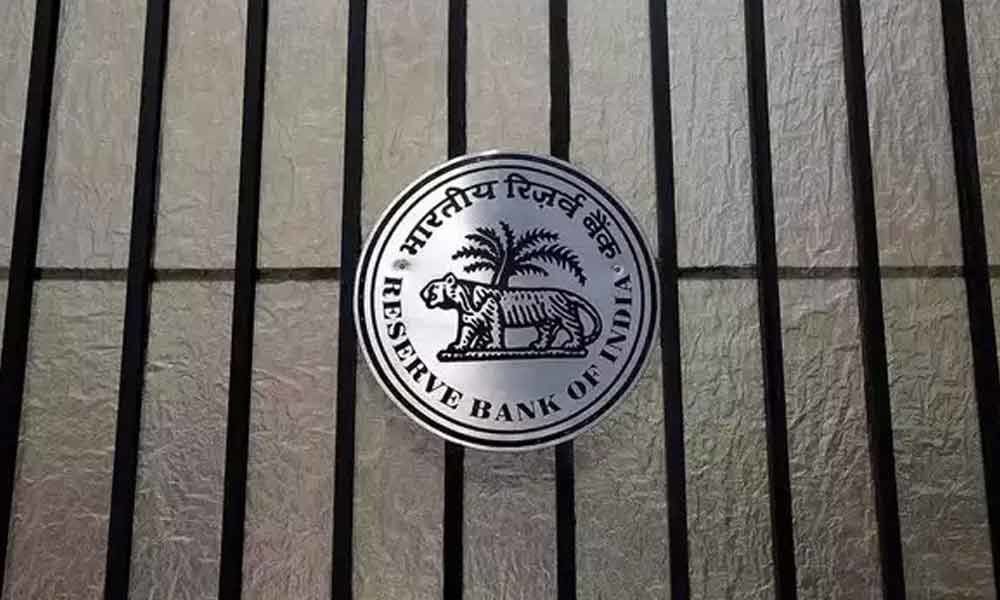Live
- GMR Airports Unveils AI-Powered Digital Twin Platform to Transform Airport Operations
- India poised to become leading maritime player: PM Modi
- Top Causes of Kidney Stones and How to Recognize Silent Symptoms
- India’s renewable energy capacity logs 14.2 pc growth at 213.7 GW
- Winter Session of Odisha Assembly adjourned sine die
- Biden calls Trump's tariff approach 'major mistake'
- After Drama Over Eknath Shinde’s Chief Minister Race, Maharashtra Cabinet Formation Faces New Tensions
- Egyptian FM, Blinken discuss recent developments in Syria
- Iran's supreme leader says Syria's developments result of US-Israeli 'plot'
- Elon Musk to Purchase $100 Million Luxury Mansion Next to Donald Trump's Mar-a-Lago, Report Reveals
Just In

The Central Information Commission (CIC) has directed the Reserve Bank of India to disclose the list of big loan defaulters it had sent to banks for resolution.
New Delhi: The Central Information Commission (CIC) has directed the Reserve Bank of India to disclose the list of big loan defaulters it had sent to banks for resolution.
The CIC's directive came while deciding on a plea by Lucknow-based activist Nutan Thakur, who had based her RTI application on some media reports that RBI Deputy Governor Viral Acharya in a lecture in 2017 had said accounts of some loan defaulters have been sent to banks for resolution. "The IAC (internal advisory committee) has recommended that the Reserve Bank of India should initially focus on stressed assets which are large, material and aged, in that they have eluded a viable resolution plan despite being classified as NPAs (non-performing assets) for a significant amount of time," Acharya had said.
The RBI had accordingly directed banks to file insolvency applications against 12 large accounts comprising about 25 per cent of the total NPAs, he had said. "The Reserve Bank has now advised the banks to resolve some of the other accounts by December 2017; if the banks fail to put in place a viable resolution plan within the timelines, these cases also will be referred for resolution under the IBC (Insolvency and Bankruptcy Code)," the RBI deputy governor had said. In her RTI application, Thakur wanted to know from the RBI the list of loan defaulters that was referred to in the lecture and the records of note sheets and correspondence regarding these accounts. The RBI had refused to provide the details to her by calling them "confidential information", following which she approached the CIC.
"The CPIO (chief public information officer) denied the information under section 8 (1) (d) (commercial confidence) of RTI Act whereas the first appellate authority held that the exemption under section 8 (1) (d) does not apply to the case and but falls under Section 45C and E of the RBI Act as per which the credit information submitted by all banks shall be treated confidential," Information Commissioner Suresh Chandra noted. The Right to Information provides a two-stage dispute resolution process. In the process, a CPIO receives and responds to the application.His decision to deny or provide partial information is first challenged before a senior officer within the organisation called the first appellate authority.
If the applicant is still unsatisfied, a second appeal can be filed before the CIC. During the hearing before the commission this month, the RBI had said on September 16, 2017, the date of filing of the RTI application, the information was not provided due to pending resolution and the list of defaulters had not been finalised, but now they can provide the information. On the issue of note sheets and correspondence, the central bank said it not only pertains to the list of willful defaulters but also the burrowers suffering economic distress.
"The information in that regard are so intertwined that it may not be possible to separate or sever each and every document... "Disclosure of names of the borrowers of economic distress would breach the confidentiality among the customers and the RBI, hence, may be exempted under section 8 (1) (d) of RTI Act," it had said. In his order, Chandra said he agrees with the RBI that the information related to note sheets and correspondence is voluminous and may also include additional information that is not sought in the RTI application.
He said the disclosure of entire files may also reveal the names of the borrowers which are not included in the list of willful defaulters. "However, the respondent (RBI) is directed to provide information and documents pertaining to point nos. 1 and 2 of the RTI application (related to list of defaulters) to the appellant," Chandra said.

© 2024 Hyderabad Media House Limited/The Hans India. All rights reserved. Powered by hocalwire.com







